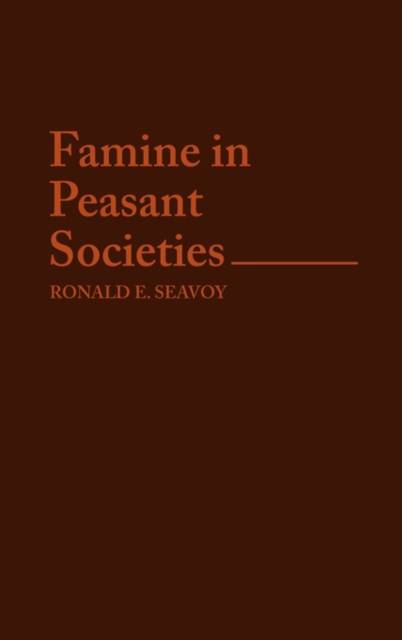
- Afhalen na 1 uur in een winkel met voorraad
- Gratis thuislevering in België vanaf € 30
- Ruim aanbod met 7 miljoen producten
- Afhalen na 1 uur in een winkel met voorraad
- Gratis thuislevering in België vanaf € 30
- Ruim aanbod met 7 miljoen producten
Zoeken
Omschrijving
In this controversial study, Seavoy offers a new approach to the problem of periodic peacetime famine based on the actual behavior of peasants. He maintains that it is possible to increase per capita food production without massive and inappropriate technological inputs. Seavoy shifts the focus from modern development economics to a cultural and historical analysis of subsistence agriculture in Western Europe (England and Ireland), Indonesia, and India. From his survey of peasant civilization practices in these countries, he generalizes on the social values that create what he terms the subsistence compromise. In all of the ages and culture, Seavoy finds a consistent social organization of agriculture that produces identical results: seasonal hunger in poor crop years and famine conditions in consecutive poor crop years. He argues that economic policies have failed to increase per capita food production because economists and government planners try to apply market-oriented policies to populations that are not commercially motivated. Once they understand the subsistence compromise, policy-makers can take appropriate political action.
Specificaties
Betrokkenen
- Auteur(s):
- Uitgeverij:
Inhoud
- Aantal bladzijden:
- 494
- Taal:
- Engels
- Reeks:
Eigenschappen
- Productcode (EAN):
- 9780313251306
- Verschijningsdatum:
- 24/06/1986
- Uitvoering:
- Hardcover
- Formaat:
- Genaaid
- Afmetingen:
- 156 mm x 234 mm
- Gewicht:
- 861 g

Alleen bij Standaard Boekhandel
+ 322 punten op je klantenkaart van Standaard Boekhandel
Beoordelingen
We publiceren alleen reviews die voldoen aan de voorwaarden voor reviews. Bekijk onze voorwaarden voor reviews.











